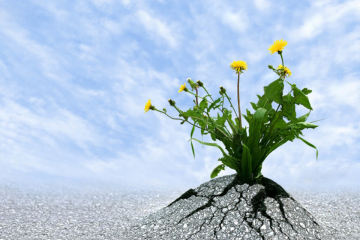How resilient are you?
A funny thing happened to me the other day. I was in a class to dig deeper into the fifteen skills that make up emotional intelligence and the EQ-i, and I was paired up with “Virginia”, a really cool woman who worked for the FAA.
We talked briefly about our careers and I mentioned that I was a former national sales manager for almost 20 years, and a happy IC before that (individual contributor). She said “wow, you must be really resilient”, and shared her respect for sales people. In her experience, sales professionals are fairly optimistic people and yes, resilient. Virginia went on to confess that she is not a very resilient person.
I never thought of myself as especially resilient but digging into the skills that impact emotional and social functioning of the EQ-i, optimism is defined as “an attitude and an outlook on life. It involves remaining hopeful and resilient, despite occasional setbacks”.
How resilient are you?
#WiseWords
Worth The Share

In this article, written by Kendra Cherry, MSEd, the author does a good job of providing an overview of resilience – the types of resilience such as mental or physical, the causes of personality traits that help us remain “unflappable in the face of challenge”, the impact of having resilience and how to become more resilient.
She also shared that people who are resilient have a set of characteristics that include:
- A survivor mentality – knowing you can make it through tough situations
- Effective emotional regulation – the ability to manage emotions in the face of stress
- Feeling in control – feeling that our actions play a part in determining outcomes
- Problem solving skills – looking rationally at a situation and coming up with options
- Self-compassion – the ability to treat yourself with kindness, especially when it is difficult
- Social support – having a solid network and being able to ask for help
Read: How Resilience Helps You Cope With Life’s Challenges including the tips on how to bounce back from hardship, they are also quite useful. My favorite technique is “reframing”, something I talk about often with my coaching clients.
And Finally...

Building on the importance of social support when it comes to resilience, The Secret of Building Resilience from HBR stresses the importance of social networks.
In June 2023, the Roots of Loneliness project, with their own research and pulling data from a variety of other sources, reports that 52% of adults in America feel lonely. Social networks are critical – whether it is a group at work, a special interest group for your profession, a service group like Rotary, a networking group like BNI or a church group. My various social groups are very important to my personal growth and feeling of connectedness.
According to the article, our networks can help us learn to make sense of the world, see the path forward, advocate for ourselves, show empathy, laugh more, remind us of our “why” and broaden our perspective. As we all go “back to school” this September, what can you do to strengthen your resilience? What social group can you join?
Happy a great week,
Mary Jo

